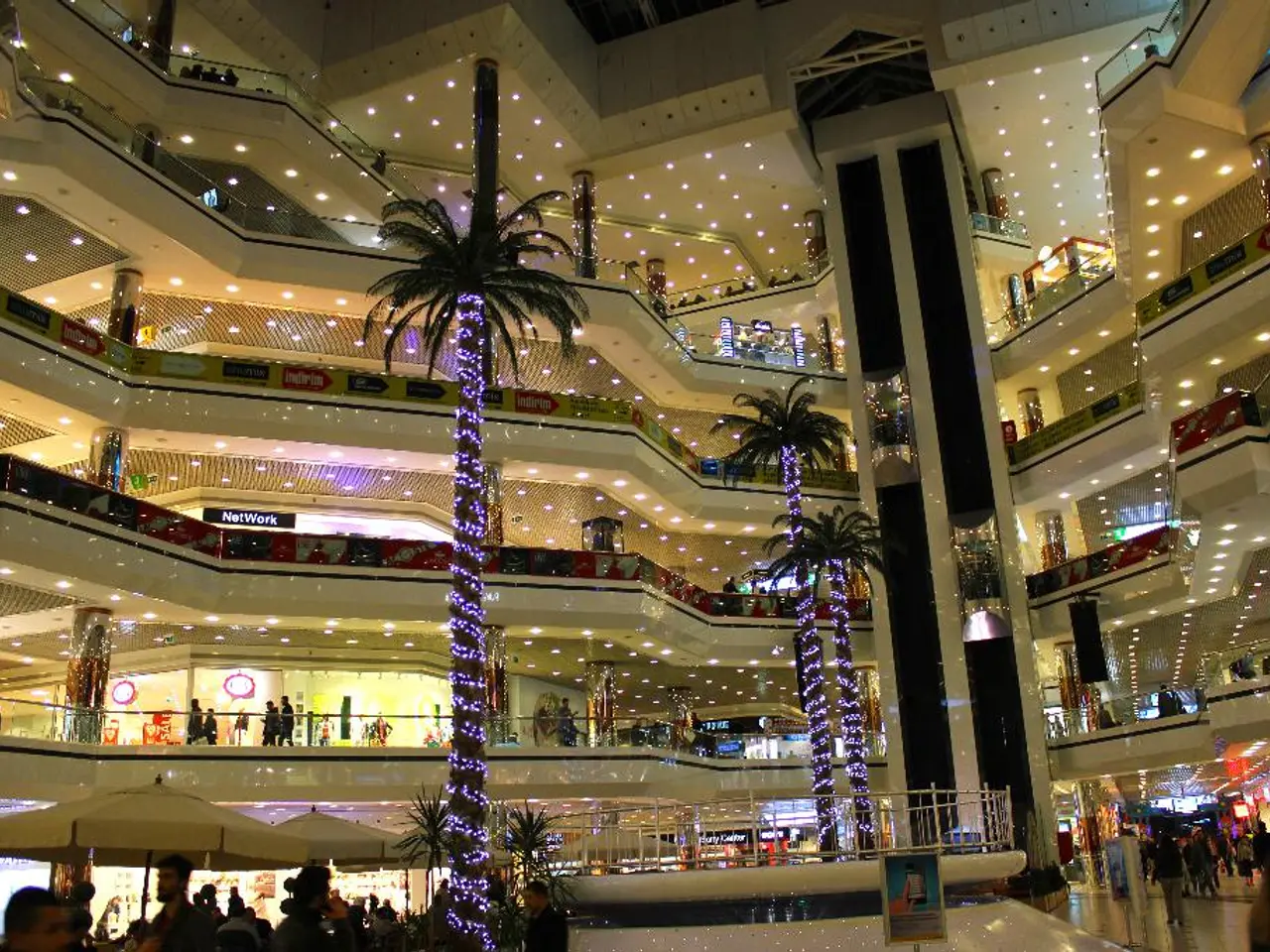Implementing Time-Slot Entry Regulations at Popular Tourist Attractions in Pune to Combat Overcrowding
In the picturesque Pune district of Maharashtra, a proactive digital crowd management measure is being implemented to balance tourism demand with environmental and safety considerations at vulnerable monsoon destinations. The slot-booking system, a tech-enabled solution for managing tourist flow and enhancing safety at popular tourist spots, is being rolled out at 25 high-traffic locations across the district [1][2][3].
The Forest Department serves as the nodal agency, developing the digital platform for advance slot booking. This initiative, which has a ₹50 crore budget sanctioned for the digital rollout and infrastructure support, aims to manage monsoon tourism by requiring tourists to pre-book time slots for specific destinations through a mobile application [1][2][3].
The system is designed to address increasing safety concerns and environmental strain brought on by a sharp rise in monsoon tourism. Waterfalls, forest trails, and trekking routes in these areas now attract thousands of visitors every weekend, often exceeding their ecological and safety limits [2].
Key details include:
- Scope: The system covers 23 to 25 high-traffic tourist locations in talukas such as Mulshi, Maval, Bhor, Rajgad, Khed, Junnar, and Ambegaon [1][2][3].
- Rationale: There has been exponential growth in visitor numbers causing environmental strain, biodiversity loss, human-wildlife conflicts, safety hazards, and infrastructure stress (e.g., unsafe bridges and crowd-related accidents) [2].
- Implementation: Physical infrastructure, including ticket counters, turnstiles, signboards, and visitor information centers, will be established to support the smooth operation of the system. Entry points at these sites will be equipped with monitoring infrastructure and staffed by Forest Department personnel and local volunteers [3].
- Expected Impact: By controlling visitor flow through scheduled slots, the system aims to protect sensitive ecosystems, reduce risks of landslides and traffic congestion, and prevent tragedies linked to overcrowding. It also supports sustainable tourism that benefits local communities [1][2][3].
Access to highly sensitive areas like Andharban and Kundalika Valley will remain closed until the system is fully implemented, with strict legal action for anyone attempting to enter these areas illegally [3]. The slot-booking system is being implemented to safeguard natural environments and manage crowd surges, a common challenge in overtourism.
The District Collector, Jitendra Dudi, stated the objectives of the slot-booking system, emphasizing the need for a balanced approach to tourism that prioritizes safety and environmental conservation [1]. The slot-booking system is part of a global effort to introduce targeted measures to manage overtourism [3].
The Forest Department is developing a mobile app for advance slot reservations for visitors. Southern Europe is experiencing a backlash against overtourism, as explained in a separate article [3]. The slot-booking system aims to manage tourist flow, enhance safety, and protect the environment, particularly during weekends and public holidays.
References:
[1] Times of India. (2023, February 14). Pune district to introduce slot-booking system for monsoon tourism. Retrieved from https://timesofindia.indiatimes.com/city/pune/pune-district-to-introduce-slot-booking-system-for-monsoon-tourism/articleshow/98234526.cms
[2] Deccan Herald. (2023, February 15). Pune district to regulate monsoon tourism with slot-booking system. Retrieved from https://www.deccanherald.com/national/western-india/pune-district-to-regulate-monsoon-tourism-with-slot-booking-system-835562.html
[3] The Hindu. (2023, February 16). Pune district to manage monsoon tourism with slot-booking system. Retrieved from https://www.thehindu.com/news/national/pune-district-to-manage-monsoon-tourism-with-slot-booking-system/article33904761.ece
The Forest Department in Pune, Maharashtra, is developing a mobile application for pre-booking slots for various environmental-science attractions as part of a comprehensive tourism management strategy. This initiative is aimed at balancing the growing interest in travel with the need to preserve the region's natural resources and ensure the safety of visitors.
Lifestyle choices of environmental-science enthusiasts seeking a departure from urban settings can now be harmonized with eco-friendly practices incorporating tech solutions, such as the slot-booking system, in the Pune district of Maharashtra, making sustainable travel a reality.





